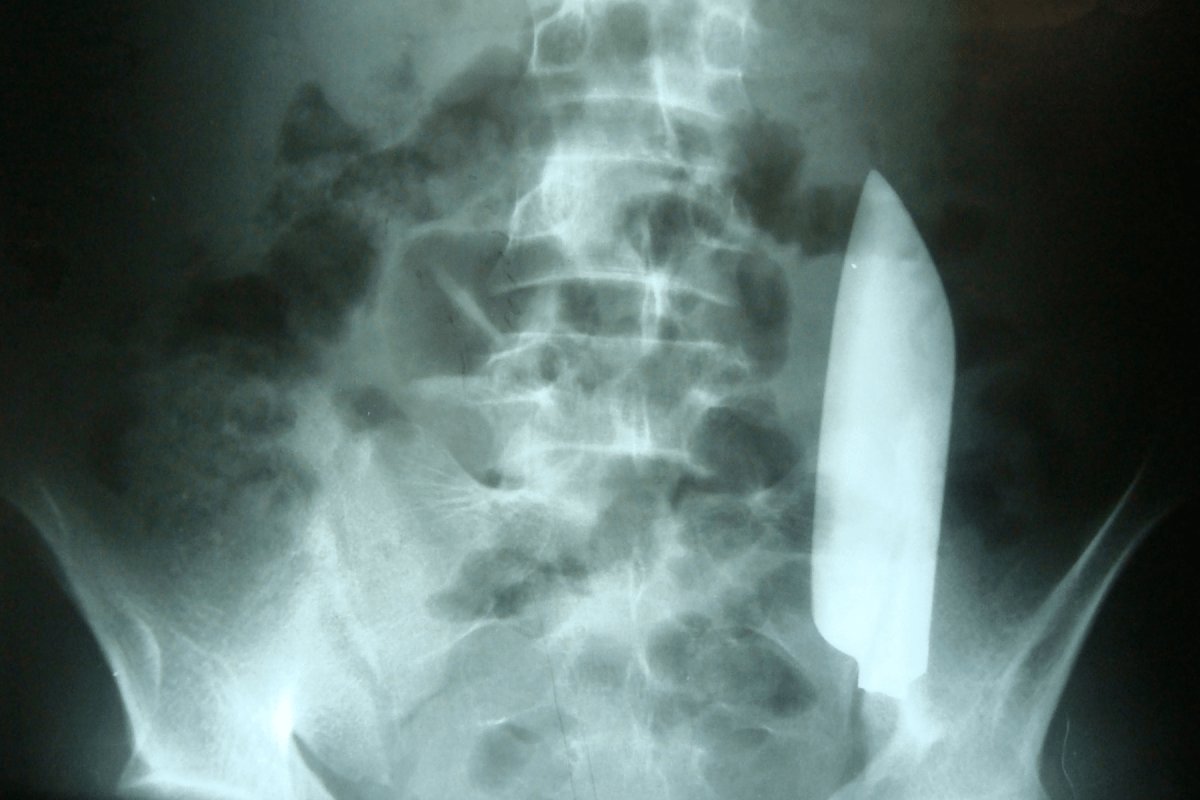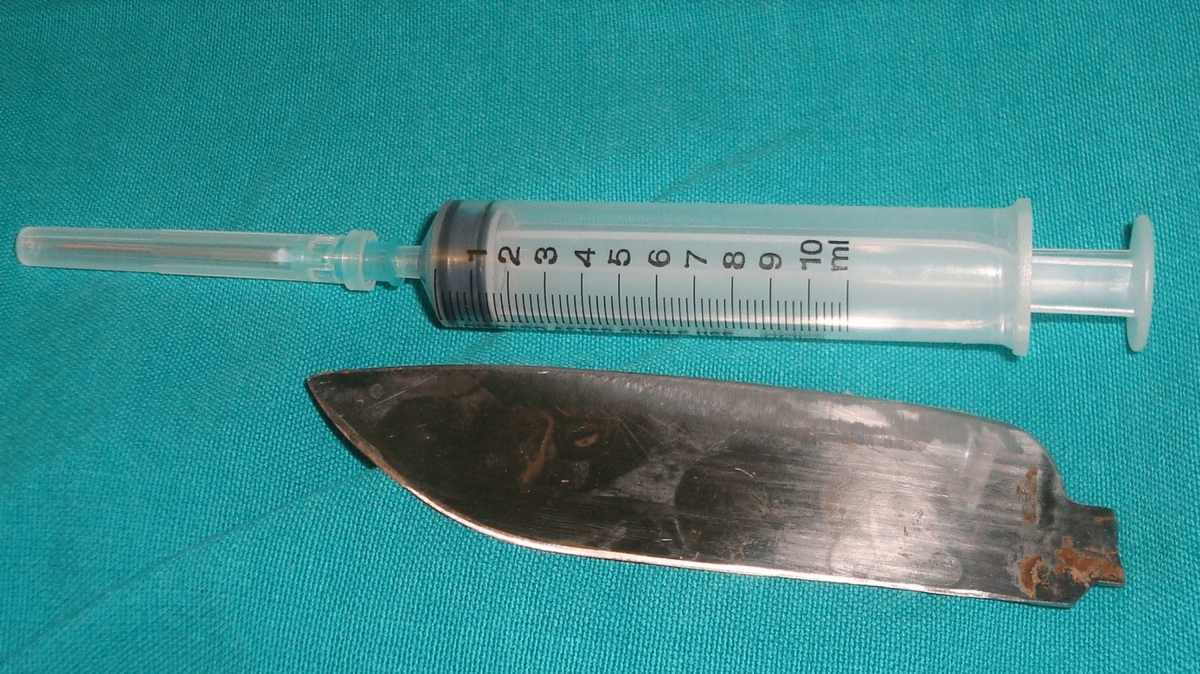A man who had stomach pain went to hospital only to discover a 6-inch knife blade inside his abdomen.
The man, a 22-year-old from Nepal, had been stabbed in a fight the day before, where a healthcare worker at a local medical shop stitched up the wound, but didn't check if the blade was still inside of him, as there was no visual clue to that being the case.
The next day, the man went into the hospital with "mild continuous left lower abdominal pain," with no signs of nausea, vomiting, diarrhea, or constipation. After X-rays were taken, doctors then found that the huge blade was indeed still inside and had floated across his abdomen from his right side to his left, seemingly without harming any other internal organs, according to a case report in the journal Cureus.

Stab wounds can cause huge blood loss inside the body, and can puncture and severely damage the internal organs of the abdomen. Stabbing can also lead to peritonitis (inflammation of the lining of the abdomen), as well as major infections.
There were around 88,000 assaults with a knife or cutting instrument in the U.S. in 2021, according to Statista, around 1,000 of which died.
"It is a potentially life-threatening condition to have a knife blade in proximity to significantly vital visceral organs in the abdomen," the case report states.
The most "wondrous" detail of this case was that the knife was not only left inside of the man, but it had moved across his abdomen in the day since the stabbing, without causing any extra injury.
A small laceration on the man's liver was thought to have been made during the initial stabbing, not the subsequent presence of the knife, given the location of the stab wound. There was minimal blood found inside the patient, and no intestinal contents, indicating that the knife had not cut into the digestive tract, and he had no signs of peritonitis.

"The potential hazard of having a sharp object freely moving in the abdominal cavity was significant with a high risk of additional injuries to organs and vessels," the authors wrote in the case report.
Very few cases of this sort have been recorded previously. Smaller objects are occasionally lodged inside the abdomen, some of which migrate: a toddler from Peru who swallowed eight needles at a farm was found to have the needles lodged throughout his body, some of which found their way near the bladder and rectum.
The knife was removed from the man's body by the surgeons, after which he made a swift recovery, being discharged only five days later. He did not turn up for a follow-up a week later, however.
Do you have a tip on a science story that Newsweek should be covering? Do you have a question about stab wounds? Let us know via science@newsweek.com.
Uncommon Knowledge
Newsweek is committed to challenging conventional wisdom and finding connections in the search for common ground.
Newsweek is committed to challenging conventional wisdom and finding connections in the search for common ground.
About the writer
Jess Thomson is a Newsweek Science Reporter based in London UK. Her focus is reporting on science, technology and healthcare. ... Read more
To read how Newsweek uses AI as a newsroom tool, Click here.








